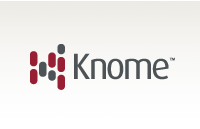[This is a repost of an article that appeared on May 29, 2007. Since I’m knee-deep in final projects and exams, I thought I’d pull out a popular article from the archives. I hope you enjoy it (again)]:
In Part I, Part II, and Part III of the “You and the $1000 Genome†series we’ve examined the Archon X PRIZE for Genomics, the International HapMap Project, and the ethical issues associated with both. In this final installment of the series we will examine the potential impact of genomic or SNP sequencing and interpretation on both medicine and genealogy (finally, some genealogy for you patient genealogists out there!).
I believe that whole genome sequencing will have myriad uses. In the paper mentioned in Part III of the series (John A. Robertson, “The $1000 Genome: Ethical and Legal Issues in Whole Genome Sequencing of Individuals (pdf).†2003 The American Journal of Bioethics 3(3):InFocus), Mr. Robertson suggests that demand for personal genome sequencing outside of the medical context could be quite limited. But that view might fail to take into account uses of genomic information other than identifying or predicting disease, such as the genetic genealogy setting. Very few could have predicted 10 years ago that thousands of genealogists would be submitting their DNA for limited sequencing as they are doing today. If information from whole genome sequencing can be used to analyze genealogy (which it surely will be), then this will create an entire niche that will increase commercial demand outside of the medical context. And this is only one such niche. There might be many many more, some of which will only develop after whole genome sequencing becomes economically available. ... Click to read more!
